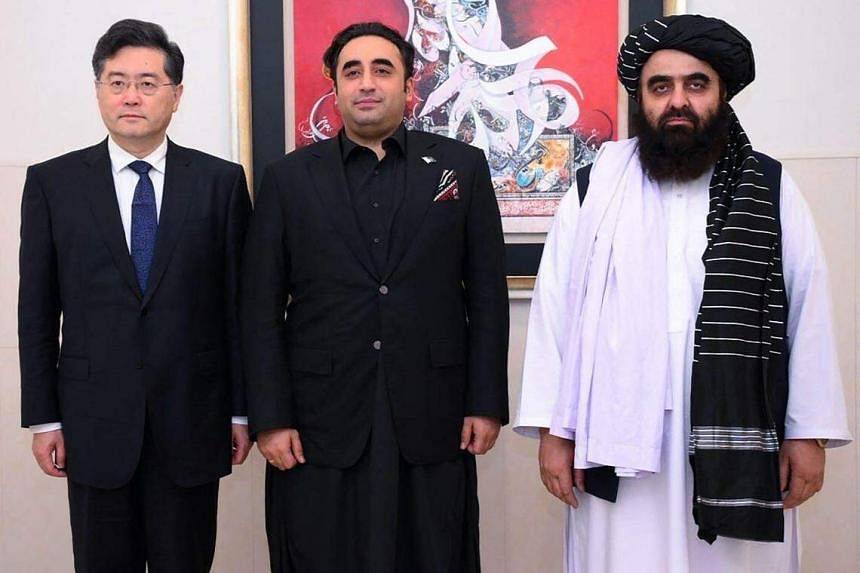Global Courant 2023-05-07 15:15:00
ISLAMABAD – The Taliban have agreed with China and Pakistan to expand the Belt and Road Initiative to Afghanistan, potentially raising billions of dollars to fund infrastructure projects in the sanctions-hit country.
Chinese Foreign Minister Qin Gang and his Pakistani counterpart Bilawal Bhutto Zardari met in Islamabad on Saturday and pledged to work together on Afghanistan’s reconstruction process, including extending the $60 billion China-Pakistan Economic Corridor (CPEC) to the the Taliban-ruled nation.
“The two sides agreed to continue their humanitarian and economic assistance to the Afghan people and to strengthen development cooperation in Afghanistan, including by expanding the CPEC to Afghanistan,” said a joint statement from Pakistan’s foreign ministry. after the meeting.
Chinese and Pakistani officials have previously discussed expanding the project to Afghanistan, built under Chinese President Xi Jinping’s flagship Belt and Road initiative, which began nearly a decade ago. The cash-strapped Taliban government has expressed its willingness to participate in the project and pledge much-needed infrastructure investment.
Top Taliban diplomat Mr Amir Khan Muttaqi traveled to Islamabad to meet with his Chinese and Pakistani counterparts and reached an agreement, his deputy spokesman Hafiz Zia Ahmad said by phone.
The Taliban also hopes that China will boost investment in the country’s rich resources, estimated at $1 trillion. The government signed its first contract in January with a subsidiary of China National Petroleum Corporation to extract oil from the northern Amu Darya basin.
Chinese and Pakistani ministers also stressed the need to release Afghanistan’s overseas financial assets. The Taliban cannot access about $9 billion in Afghanistan’s central bank reserves abroad because they fear the money will be used for terrorist activities.
Frozen assets
Washington later agreed to release half of it to bolster the economy, but put it on hold after the Taliban imposed certain school and work restrictions on Afghan women in 2022.
The militants-turned-administrators see investment as a way to restore a cash-strapped economy after international aid, which accounts for 60 percent of government spending, was cut following the chaotic withdrawal of US troops in 2021.
China, Russia and Iran are among a handful of countries that maintain close ties with the Taliban. They have provided tens of millions of dollars in aid to the Taliban but have not formally recognized the government.
The United States remains the largest donor of humanitarian aid to global organizations, with more than $2.1 billion since the Taliban’s return to power, according to a report.
A UN agency said last week it needs $4.6 billion by 2023 to help more than two-thirds of the country’s 40 million people living in extreme poverty. A 2022 Gallup poll found that nine in ten Afghans find it “difficult” or “very difficult” to make ends meet on their current income.
Chinese companies are hesitant to invest in Afghanistan because of attacks by the Islamic State group, which competes with the Taliban for influence. In December, the militant group was credited with attacking a Kabul hotel popular with Chinese diplomats and businessmen.
There is also the presence of the East Turkistan Islamic Movement, a Xinjiang-based separatist group, which Beijing has held rather reluctant to expand its influence.
Muttaqi’s second visit to Pakistan comes days after the United Nations stressed the need to cooperate with Taliban rulers as Afghanistan faces the “biggest” humanitarian crisis in the world. BLOOMBERG








